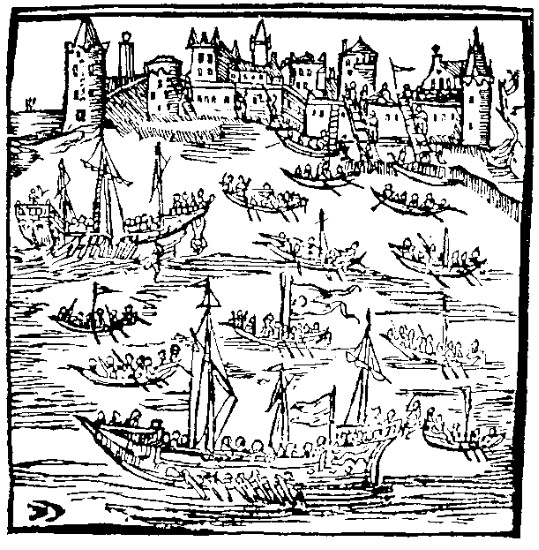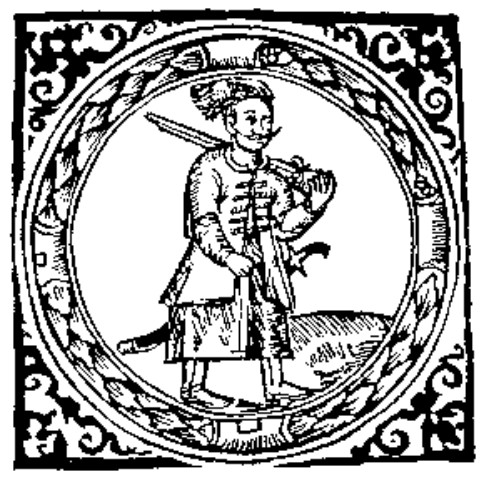Sakovych, Kasiian
Sakovych, Kasiian [Сакович, Касіян; Sakovyč, Kasijan] (secular name: Kallist), b ca 1578 in Potylych, Rava Ruska district, Galicia, d 1647 in Cracow. Churchman, philosopher, and polemicist. He studied at the Zamostia Academy and the Cracow Academy before being tonsured in 1620. He served as rector of the Kyiv Epiphany Brotherhood School (1620–4) and then as chaplain for the local Orthodox brotherhood in Lublin. He soon joined the Uniate church and became archimandrite of the Dubno Monastery (1626–39). In 1640 he joined the Roman Catholic church and entered the Augustinian order in Cracow.
Sakovych was a gifted writer. His Aristoteles problemata, albo Pytania o przyrodzeniu człowieczym (Aristotle's Problem, or the Question of the Nature of Humanity, 1620) and Tractat o Duszy (A Tract on the Soul, 1625), both of which were published in Ukrainian translation with commentaries in Pam'iatky bratskykh shkil na Ukraïni, kinets’ XVI–pochatok XVII st. (Monuments of the Brotherhood Schools in Ukraine, Late 16th–Early 17th Centuries, 1988), were probably the first surveys of Western philosophy by a Ukrainian author. His Virshi na zhalosnyi pohreb zatsnoho rytsera Petra Konashevycha Sahaidachnoho (Poems for the Grievous Funeral of the Noble Knight Petro Konashevych Sahaidachny, 1622), written in Ukrainian in a baroque syllabic style, was recited as an elegy at Hetman Petro Konashevych-Sahaidachny's funeral by students of the Kyiv Epiphany Brotherhood School. In this work Sakovych portrayed the Cossacks as knights defending Orthodoxy. After his conversion to Roman Catholicism he wrote several polemical attacks on Orthodoxy and Uniatism, including Sobor Kiiowski schismaticki (The Schismatic Sobor in Kyiv, 1641); Kalendarz stary ... (The Old Calendar ..., 1642), where he criticized the retention of the Julian calendar among Ukrainians; and Epanorthosis, albo Perspektiwa ... (Epanorthosis, or Perspective ..., 1642), where he criticized the Byzantine church rite and described Ukrainian religious practices as superstitious. This last book drew a sharp response from both Orthodox (probably Petro Mohyla) and Uniate (Parkhomii Oransky-Voina) polemicists.
[This article originally appeared in the Encyclopedia of Ukraine, vol. 4 (1993).]


.jpg)